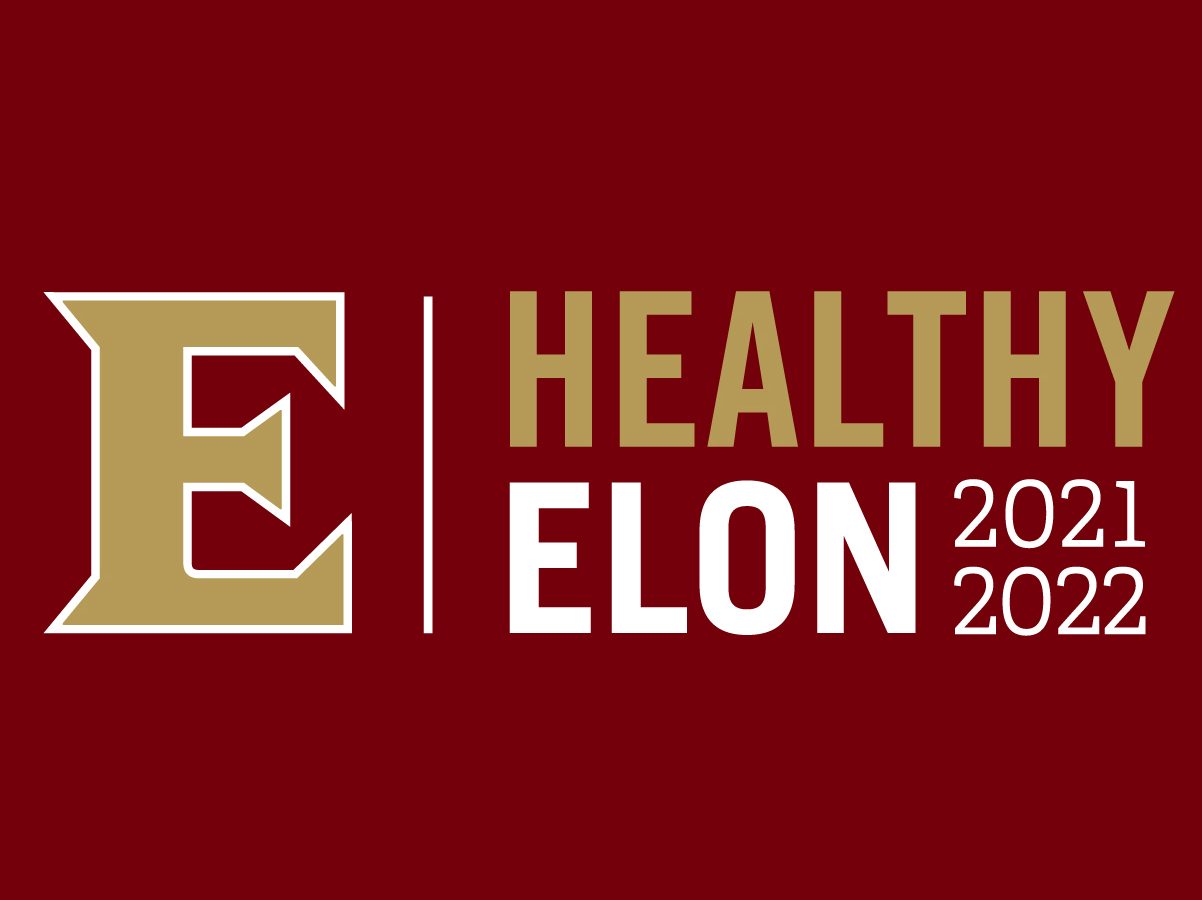The change was announced by the Health Elon Committee following declines in health metrics combined with higher vaccination and booster rates within the campus community.
Dear members of the Elon community,
First, we want to thank you. Your commitment and cooperation have enabled our community to manage many challenges this academic year and continue in-person learning and campus operations.
Just as we adapted to the expanding COVID-19 spread last fall, we are now positioned to reduce community restrictions – guided by science, public health protocols, and better medical treatments to protect our community. With the Delta wave behind us and the Omicron surge decreasing rapidly, public health officials say that declines across health metrics, combined with our high vaccination and booster rates, signify a reduced threat, allowing us to take steps toward fewer restrictions.
Barring unforeseen changes in current trends, we will make the following adjustments.
Campus Mask Policies
- On Monday, March 14, Elon will shift to an indoor mask optional policy for all campus spaces. Elon endorses the rights of everyone to make their own personal choices about wearing masks.
- Those who have not received their vaccination and booster, who are at elevated risk, or who have family members at risk are strongly encouraged to continue the use of masks indoors. Everyone on campus should keep a mask with them for situations where extra protection is needed or if they are not feeling well.
- Everyone should support and offer respect and understanding for those who choose to wear masks to protect themselves or their loved ones. Individuals with specific health concerns may ask visitors to their small, closed workspaces to be masked or may ask to meet in a different location. We ask the community to be respectful and honor such requests.
- Masks will still be required for:
- Everyone in Student Health Services, Faculty-Staff Wellness Clinic, the asymptomatic testing center in McCoy Commons, and Health Sciences medical outreach programs
- Anyone experiencing COVID-like symptoms
- Five days after completion of a five-day isolation period after a positive test.
- Free N-95 or KN-95 masks will now be available at Moseley front desk, and we will continue to maintain the highest levels of ventilation and filtration possible in all buildings.
Testing protocols
- Those who are unvaccinated or without their booster are still required to test weekly throughout spring semester.
- Asymptomatic testing in Oaks 207 will remain open and available to all, including for students, faculty, or staff who want to test after Spring Break.
- Symptomatic testing will continue by appointment at Student Health Services and Faculty/Staff Wellness. Click here for scheduling information.
Quarantine and isolation policies
- A five-day isolation/quarantine period will continue to be required for all who test positive and unvaccinated close contacts.
Positive trends that support these changes
We are making these decisions based on guidance from health officials and metrics that point to a much-reduced threat of the virus.
- More than 98% of eligible undergraduate students have met the booster requirement and more than 86% of full-time faculty and staff have received their booster.
- Currently, there is one active student COVID-19 case and two active employee cases.
- In the past seven days, there have been two total positive cases out of 879 tests at asymptomatic and symptomatic testing, a .23% positivity rate.
In both Alamance and Guilford Counties, the average number of daily new cases has fallen by 90% since the peak set in January.
Respect going forward
We must recognize that today’s COVID-19 situation is vastly different than before the availability of vaccines/boosters, testing, and treatments. Public health recommendations and metrics verify it is prudent to adjust restrictions within our community, while remaining aware that we may need to take quick action, including restoring mask requirements, if conditions change.
At the same time, we must also understand that some students, faculty, staff, and their family members have increased health concerns, and there is no way to guarantee no new infections in our community. This moment calls on each of us to show respect and empathy as we learn to live with the virus together and as members of our community balance different needs for themselves and their family members.
Thank you for your continued commitment and partnership,
Jeff Stein, Healthy Elon Committee Chair
- Dan Anderson, Special Assistant to the President
- Ginette Archinal, Medical Director of Student Health and University Physician
- John Barnhill, Associate Vice President for University Advancement
- Jon Dooley, Vice President for Student Life
- Tom Flood, Assistant Vice President of Physical Plant
- Jason Husser, Associate Professor of Political Science and Policy Studies, and Director of the Elon Poll (Academic Council Representative)
- Deandra Little, Assistant Provost, Director of the Center for the Advancement of Teaching and Learning and Professor of English
- Paul Miller, Associate Provost for Academic Excellence and Operations and Professor of Exercise Science
- Kelly Reimer, Senior Director of Teaching and Learning Technologies (Staff Council Representative)
- Keren Rivas, Interim Vice President for University Communications and Marketing
- Carrie Ryan, Assistant Vice President for Auxiliary Services
- Kelli Shuman, Associate Vice President for Human Resources & Chief Human Resources Officer
- Gabie Smith, Dean of Elon College, the College of Arts and Sciences and Professor of Psychology
- Mary Southern, Project Manager for Provost and Academic Affairs Operations (Project Manager)
- Mike Ward, Deputy Director of Athletics
- Randy Williams, Vice President and Associate Provost for Inclusive Excellence and Assistant Professor of Education



